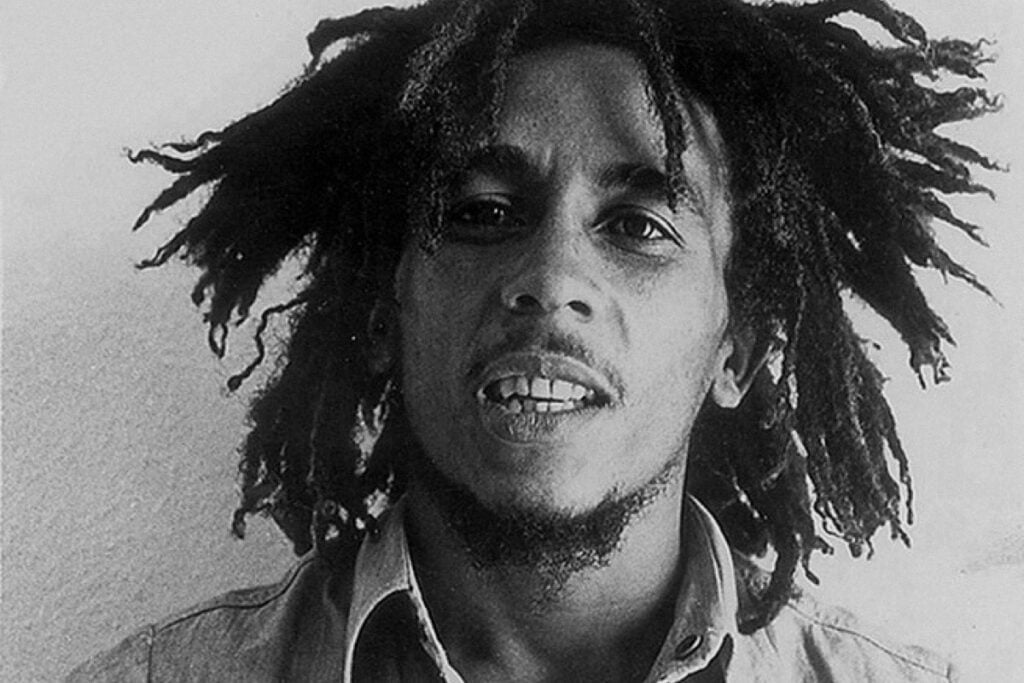Bob Marley, the legendary Jamaican singer, songwriter, and pioneer of reggae music, left an indelible mark on the world with his powerful voice, profound lyrics, and commitment to peace and unity. Even decades after his death, his music continues to inspire millions. Here’s an in-depth look at his final years, his battle with illness, the circumstances of his death, his funeral, and the enduring legacy he left behind.
Final Years and Battle with Illness
In the late 1970s, Bob Marley continued to be a global icon, spreading messages of love, social justice, and Rastafarian beliefs through his music. However, his health began to decline in 1977 when he discovered a suspicious dark spot under his toenail. Initially dismissing it as a soccer injury, Marley later learned that it was acral lentiginous melanoma, a rare form of skin cancer.
Despite the diagnosis, Marley remained dedicated to his music and continued to tour and record. He postponed medical treatments in alignment with his Rastafarian beliefs, which influenced his approach to conventional medicine. By 1980, as the cancer spread to his brain, lungs, and liver, Marley’s health visibly deteriorated. He performed his last concert on September 23, 1980, at the Stanley Theatre in Pittsburgh, Pennsylvania, a poignant moment marking the end of his public performances.
Death and Circumstances of Passing
Bob Marley passed away on May 11, 1981, at the age of 36, in Miami, Florida, after an arduous battle with melanoma. His final words to his son Ziggy were reportedly, “Money can’t buy life.” Marley died surrounded by family and close friends, who had supported him throughout his final months. His passing was met with widespread mourning, both in Jamaica and around the world, as fans and admirers reflected on the loss of a cultural and musical revolutionary.
Bob Marley’s Funeral
Bob Marley’s funeral was a national event in Jamaica, blending elements of Rastafarian and Ethiopian Orthodox Christian traditions. The ceremony, held on May 21, 1981, in Kingston, was attended by thousands, including Jamaican Prime Minister Edward Seaga, who delivered a moving eulogy: “His voice was an omnipresent cry in our electronic world. His sharp features, majestic looks, and prancing style a vivid etching on the landscape of our minds.”
Marley was laid to rest in a mausoleum in his birthplace, Nine Mile, located in Saint Ann Parish, Jamaica. His burial site has since become a place of pilgrimage for fans worldwide. In his coffin, he was buried with symbolic items, including a Gibson Les Paul guitar, a Bible opened to Psalm 23, and a sprig of ganja—a testament to his deep spiritual beliefs.
Legacy
Bob Marley’s legacy is profound and multifaceted. His music transcends cultural, linguistic, and geographical boundaries, cementing his status as a global icon for peace, love, and resistance against oppression. Songs like One Love, No Woman, No Cry, and Redemption Song continue to be anthems for movements advocating for freedom and equality.
Marley also left a significant impact on the spread of reggae music and the Rastafarian movement. He brought the message of Rastafari to a global audience, fostering understanding and appreciation of its spiritual and cultural practices. His influence is reflected in the countless artists and activists who cite him as an inspiration, as well as in the continued success of the Marley family, who have carried on his musical and philanthropic traditions.
Beyond music, Bob Marley’s legacy includes humanitarian work. His advocacy for peace and unity resonated in his support for social causes, which his family continues to uphold through various charitable foundations and initiatives. The Bob Marley Foundation, established after his passing, works to support education, health care, and community development in Jamaica.
Frequently Asked Questions
These frequently asked questions are listed to make it quick to help you get your most common questions answered about Bob Marley’s funeral.
What illness did Bob Marley suffer from?
Bob Marley suffered from acral lentiginous melanoma, a rare form of skin cancer.
When did Bob Marley pass away?
Bob Marley passed away on May 11, 1981, at the age of 36.
What were Bob Marley’s last words?
His last words to his son Ziggy were, “Money can’t buy life.”
Was Bob Marley buried or cremated?
Bob Marley was buried in a mausoleum.
Where are Bob Marley’s remains?
Bob Marley’s remains are interred in a mausoleum in his birthplace, Nine Mile, Saint Ann Parish, Jamaica.
What items were buried with Bob Marley?
Marley was buried with a Gibson Les Paul guitar, a Bible opened to Psalm 23, and a sprig of ganja.
Did Bob Marley continue to perform after his cancer diagnosis?
Yes, Bob Marley continued to tour and perform after his diagnosis, with his final concert taking place on September 23, 1980, in Pittsburgh, Pennsylvania.
How did Jamaica honor Bob Marley after his death?
Jamaica held a state funeral for Marley, attended by thousands, including Prime Minister Edward Seaga, who delivered a powerful eulogy.
What is the significance of Bob Marley’s legacy?
Bob Marley’s legacy includes his music, which continues to inspire people worldwide, his role in spreading reggae and Rastafarian culture, and his humanitarian work through the Bob Marley Foundation.
Did Bob Marley reject conventional medical treatment?
Marley initially postponed conventional medical treatment due to his Rastafarian beliefs, which impacted his approach to dealing with his illness.
What was the last concert Bob Marley performed?
Marley’s last concert was at the Stanley Theatre in Pittsburgh, Pennsylvania, on September 23, 1980.







